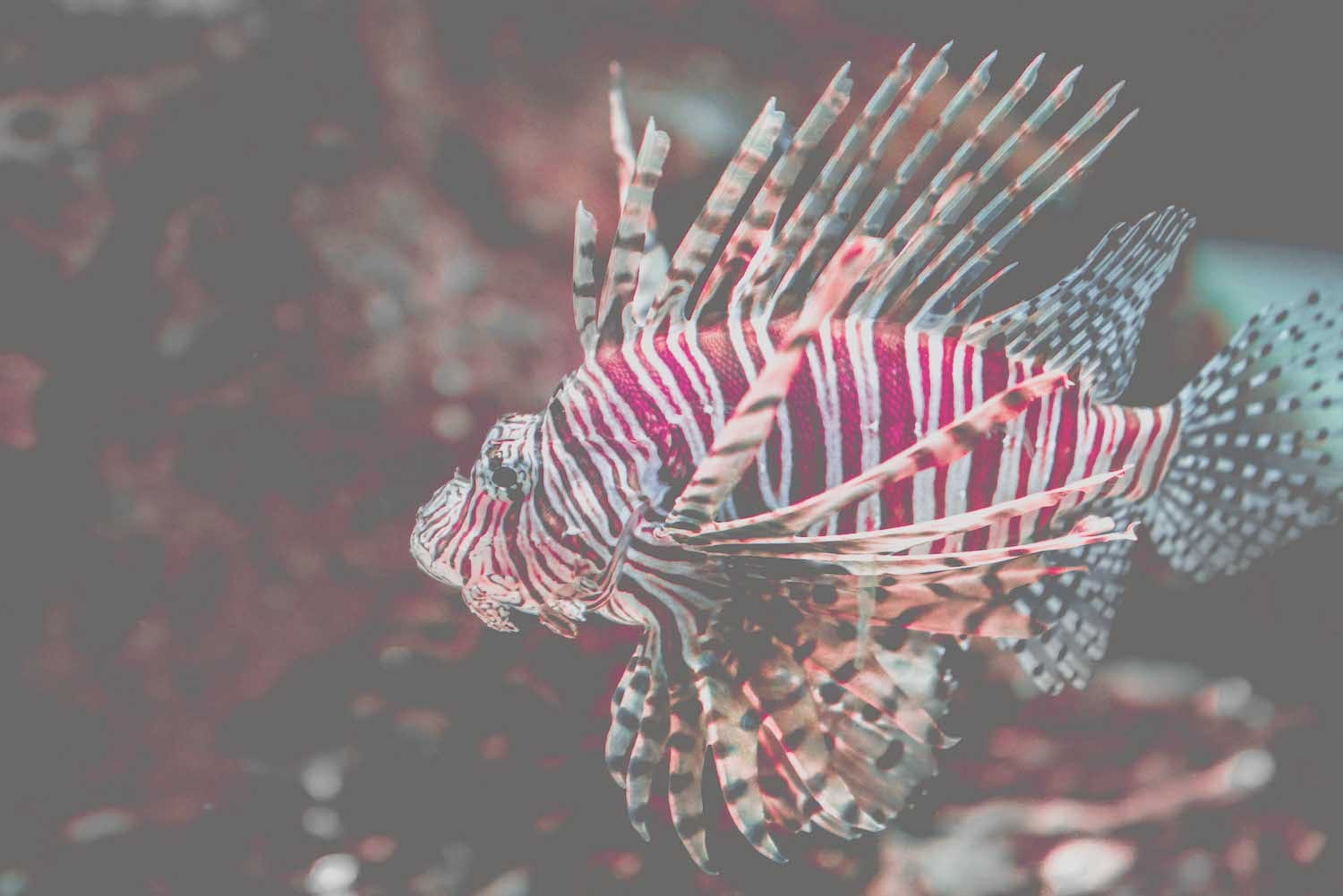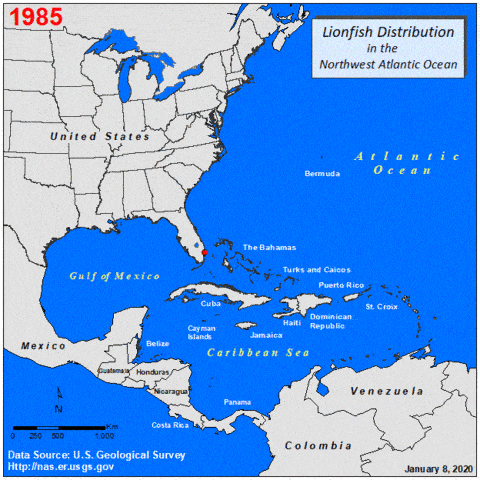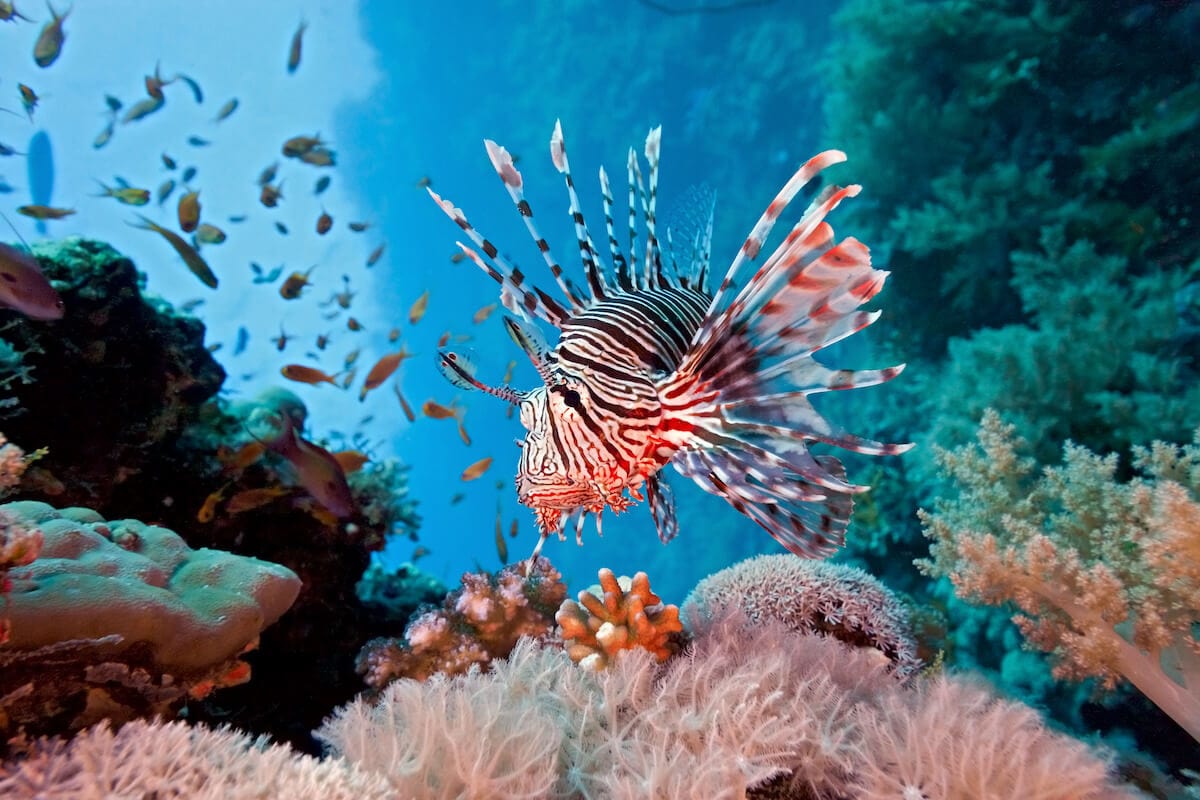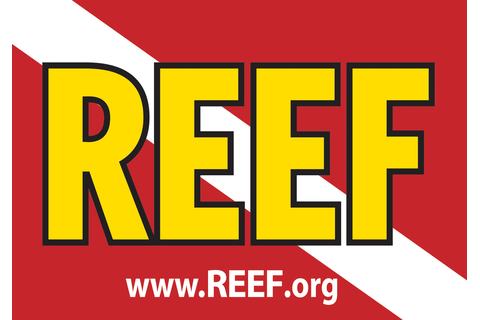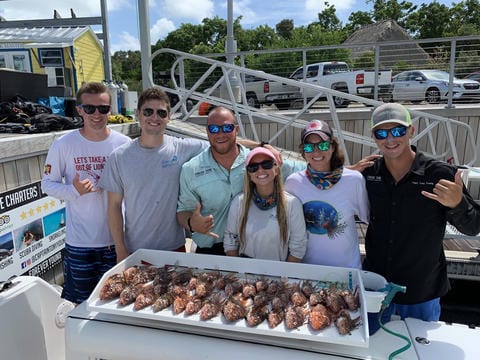Your purchases have donated $343,639 to marine science research and education!
Hey, we're Waterlust
We're in business to build a more sustainable world by bringing environmental science into your life in creative ways.
★★★★★
Waterlust is the best!
Great products, great customer service, great mission! Worth every penny.
- Michelle Rumbaut, TX
















Educational resources & donation included with every purchase. Learn more.
Known for their show stopping appearance, venomous spines, and voracious appetites, invasive Indo-Pacific lionfish (Pterois volitans & Pterois miles) are the first non-native marine fish to become established in the Atlantic. Lionfish pose a significant threat to local marine ecosystems due to widespread predation of native species, prolific reproduction, and lack of controlling predators.
88% Repreve® RPET (recycled polyester), 12% spandex, giving post-consumer plastic bottles a positive future.
To learn more about this product's environmental impact, click here.
5% of sales will be donated to Reef Environmental Education Foundation (REEF), an international marine conservation organization that has been at the forefront of action on invasive lionfish since 2006.
Orders are lovingly packaged using minimal packaging and eco-responsible materials, and shipped from our wonderful partner warehouse in Pennsylvania within the same or next business day. We’ll email you with your tracking info as soon as your order is shipped.
Learn more about shipping, exchanges and returns here.
Tag us @waterlust to be featured
Lionfish in their native range, from the South Pacific to the Red Sea, are an important part of the coral reef ecosystem and population numbers are kept in check through natural processes.
However, they are non-native to the Atlantic ocean and have become established as a harmful invasive species in this region, posing a significant threat to local marine ecosystems due to widespread predation on native species, prolific reproduction, and lack of controlling predators. Humans must intervene to reduce their impact in the invaded waters, and our Invasive Lionfish collection exists to promote action and awareness on this issue.
Beginning in the 1980s, two visually identical species of lionfish (Pterois miles and Pterois volitans) were introduced into the Atlantic via the US aquarium trade and have become the first non-native marine fish to become established in the Atlantic. Over the past decade, invasive lionfish densities in these non-native areas have exploded, as they have been documented along the entire US East Coast from Florida through Massachusetts, east to Bermuda, and south throughout the Caribbean. The expansion has been extremely rapid and exponential in scope.
“REEF’s partnership with Waterlust embodies our mission to protect biodiversity and ocean life by engaging and inspiring the public. We are proud to be part of Waterlust’s advocate apparel family, and are excited to continue working together to advance awareness and understanding of invasive lionfish and other marine conservation initiatives.”
Dr. Alli Candelmo, Conservation Science Manager
Reef Environmental Education Foundation (REEF)
Reef Environmental Education Foundation (REEF)’s Invasive Species Program has been at the forefront of the lionfish invasion since the arrival of the species in Florida in 2006, and 10% of profits from your purchase goes to this program. REEF’s efforts have included laying the groundwork for developing early detection and rapid response plans to mitigate the impacts, training resource managers and dive operators in effective collecting techniques, and conducting innovative research to better understand what has made Indo-Pacific lionfish the perfect invader.
Love these tops. Perfect for a sports bra and my favorite bathing suit top. Also love the lionfish pattern, its bright and the message is great. This one i had to get because I go scuba diving in the caribbean every year and we hunt the lionfish during the dives to help maintain the reef and keep the numbers down. This is actually my second one of these tops in this same pattern. They hold up great. And reversable pattern is nice for trips if you have to rewear it or want a different vibe. Also it's fun that at least one person every trip knows the brand and we talk about it, and I get lots of questions about the different patterns and share with the other divers.
My top is much lower on the arm holes than the illustration. Not nearly the coverage I'd hoped for.
Hi there,
Thanks for taking the time to leave this feedback! I'm sorry to hear the top you received did not fit how you were hoping. It sounds like going up a size may provide the coverage you would like. Shoot us an email at hello@waterlust.com and we can help you set up an exchange to see if the next size up is a better fit!
Camilla
I have never before seen clothing so well made except by my own hand and sewing machine. This is a fantastic bargain! And we’re helping ocean conservation in the process. Waterlust deserves every success as a deserving enterprise.
Purpose-Driven, Family-Run
Advocate for Marine Conservation
Donate to Research + Education
Eco-Responsible
Notify me when available
We will send you a notification as soon as this product is available again.
We don't share your email with anybody
